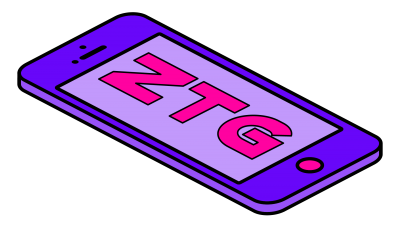
“We aim to reduce the consumption of space taken up by cars by having more e-scooters on the ground, and strategically placing them in places that are convenient and accessible. E-scooters take up way less parking space than cars, and that allows us to tackle the issue of limited car-park spaces within the campus.”
Justin Tiew, General Manager of Beam Mobility Malaysia.
In a bid to encourage car-free journeys among young Malaysians, Beam Mobility has partnered with several Malaysian universities to make Beam’s e-scooters available for use on various campuses across the country.

By keen interest from faculty staff and support by URBANICE Malaysia, Beam is now available in 9 universities:
- Universiti Sains Malaysia Penang (USM)
- Universiti Teknologi Mara (UiTM) Perak
- Universiti Teknologi Mara (UiTM) Terengganu
- Universiti Teknologi Mara (UiTM) Sabah
- International University of Malaya-Wales (IUMW)
- EduCity Iskandar
- Universiti Teknologi Malaysia (UTM) Kuala Lumpur
- Universiti Malaysia Sarawak (UNIMAS)
- Universiti Malaysia Pahang
More universities are expected to adopt Beam e-scooters this year, as currently, more than 1,000 rides are being completed across Malaysian Universities daily. With Beam’s presence at these campuses, residents, students, and even teachers are now able to easily hop on and off Beam e-scooters to travel between faculty buildings, lecture halls, sports and leisure facilities, and residential suites.

With Beam’s shared e-scooters placed at key locations in and around these campuses, students can ride anywhere safely in minutes without having to start a car or seek parking spaces. Moreover, at an affordable pay-as-you-go rate of RM0.60 per minute, it is a more cost-effective transport mode for students in the short and long term.
At EduCity Iskandar, Asia’s first multi-campus education city, Beam’s e-scooters are actively used by students from nine different universities across its 305-acre campus, swiftly connecting people to each of their integrated shared facilities such as the state-of-the-art sports complex (EduCity Sports Complex), an innovative social and coworking space (EduCity Hub), start-up incubation space (FastSpace), and student accommodation buildings (EduCity Village). While this greatly improves student mobility, the e-scooter usage also reduces on-campus car dependencies and carbon emissions.
“Beam’s presence aligns with SDG efforts as an education city that supports green technology initiatives. We hope that with this new offering, our community can enjoy the ecosystem and ideal campus lifestyle that EduCity offers,” said Prof. Dr Sakina Sofia Baharom, Director of Operations for EduCity Iskandar Malaysia Sdn Bhd.
The EduCity Iskandar campus is one of seven of Beam’s growing partnerships with Malaysian universities, and the introduction of the company’s e-scooters on campus was met with great excitement and positivity among their respective students, who were very eager to use them for their commutes across their sprawling campuses.
Additionally, since December 2022, Beam was made implementation partner for the Sandbox of Sustainable Micromobility Integration and Innovation, a year-long collaboration between Universiti Teknologi Malaysia Kuala Lumpur (UTM KL), Dewan Bandaraya Kuala Lumpur (DBKL), and URBANICE Malaysia. This partnership explores sustainable mobility innovations towards low carbon cities and the integration of public transport to support first and last mile connectivity.
Supporting The Car-Free Generation

The introduction of Beam’s shared e-scooters in universities is an example of the micromobility service provider’s efforts to alleviate some of the pressures of car ownership on students and young adults.
A public survey conducted by Beam involving 1,008 Malaysians found that more young Malaysians are turning away from cars due to the rising costs of ownership and increasing traffic congestion. According to Malaysia’s Department of Statistics, Malaysians spend an average of RM611 per month on transportation alone and lose almost two whole days (44 hours) every month being stuck in traffic. These costs of time and money weigh especially heavily on a student’s shoulders and as a result, a growing number of them are looking towards alternative modes such as public transportation to help them get around.
However, taking public transport can be challenging and time consuming. First and last mile connectivity leaves much to be desired, and with most Malaysians living more than a 30-minute walk from the nearest convenient public transport connection, many default to cars for its ability to take them most of the way, in the same amount of time.
Beam’s e-scooters are able to fill these connectivity gaps with ease, turning 30-minute walks into 5–10-minute e-scooter rides, resulting in significantly reduced commute times when using public transport.
In fact, responses from Beam’s public survey indicate that Malaysians are willing adopters of shared-e-scooters, with 76% of 670 car-commuting Malaysians saying they would “definitely” or “probably” switch to a combination of e-scooters and public transportation if they had access to them. More encouragingly, 26% of respondents from this group added that they “currently own a car, but would be more likely to sell it”, if shared e-scooters were readily available.


